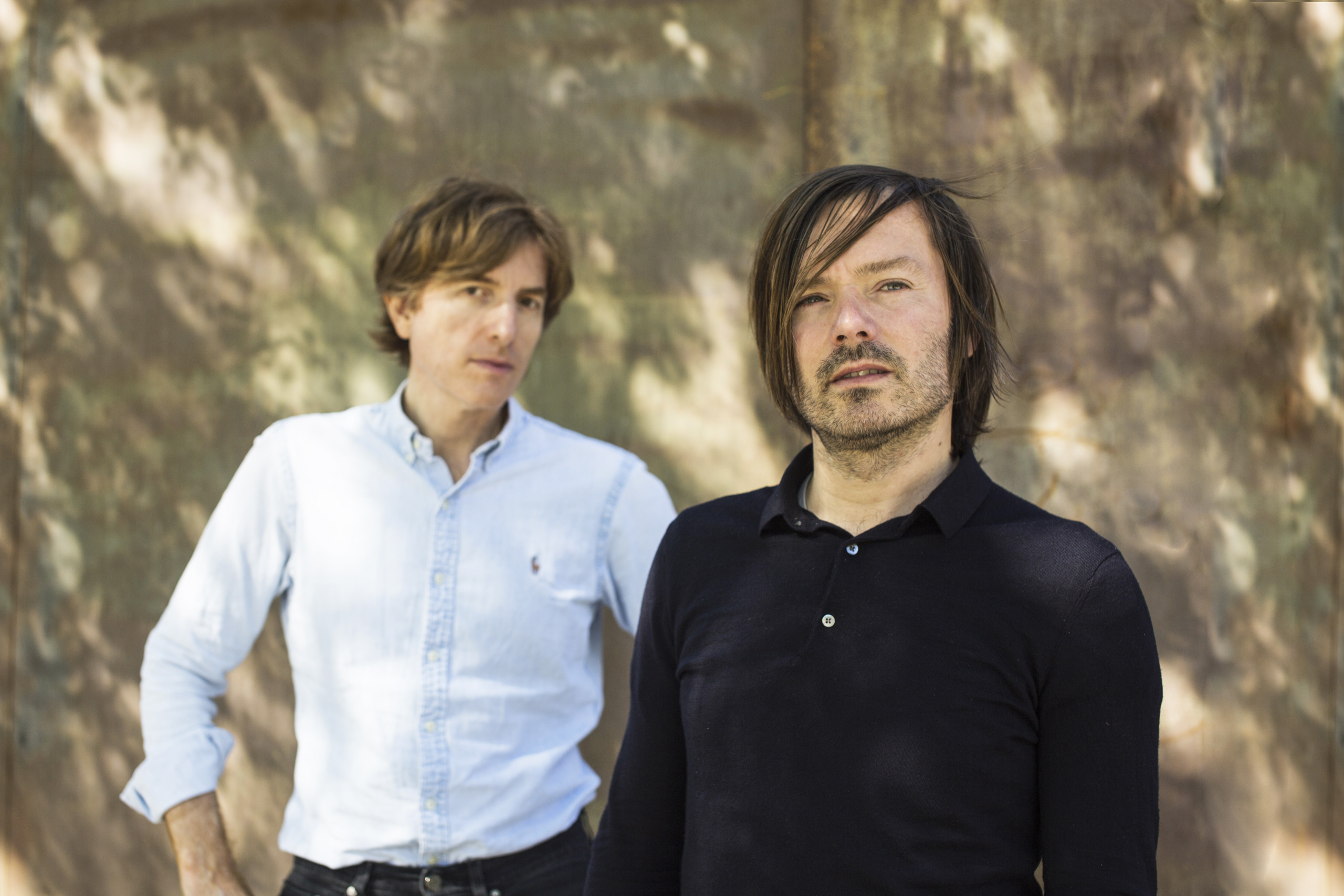Godin and Dunckel both grew up in Versailles but weren’t yet friends in the Parisian suburb. In fact, the pair first met playing in an alternative band named Orange, in Paris. Dunckel had earlier joined the group, before a bandmate introduced Godin into the mix. Air actually began as Godin’s own project: an architecture student at the time, the sometime amateur musician was asked by a childhood friend to write a song for a new compilation to be released by Source, the small independent French label. Having then contributed ‘Modulor Mix’ and seen this re-released on British label Mo’ Wax in 1996, Godin asked Dunckel to join Air full-time soon afterwards.
Despite the auspicious start, Godin doubted the project would go anywhere. “I thought that we would never make a musical career because my own taste was so different from everything on the radio in the eighties and nineties,” he recalls. “I really hated everything coming from the French music scene, it was pretty depressing. The sound of the sound engineers, the way the drums were played, the sound of the guitar players. It was just the worst thing!”
Nonetheless, following a series of maxi-singles for Source – which were ultimately gathered up and released on the excellent ‘Premiers Symptomes’ double EP in 1999 – Godin and Dunckel were asked to record a whole album. After working in a studio near Paris for several months with freelance engineer Stéphane Briat, the resulting retro-futuristic record, ‘Moon Safari’, was a near-instant classic. “Ever since I was a child, I’d dreamed of making a classic album – and I actually did,” Godin said to The Guardian recently. “The night we did ‘Sexy Boy’, I knew my life would change.”
He was right. ‘All I Need’, ‘Kelly Watch the Stars’ and ‘Sexy Boy’ – with its raunchy, drop-D bass riff – soon wound up in the charts and in heavy rotation on MTV. ‘Moon Safari’ went Platinum in the UK, Gold in France and positioned Air as figureheads for French pop music abroad, though the pair never felt fully accepted in their homeland. “When we first had success it was coming from England, actually,” adds Dunckel, by far the shier of the two but finally weighing in with the same velvety soft accent as his bandmate. “We had English singing [from American vocalist Beth Hirsch] so it was perceived in France as something more Britannic.”
Godin is typically far less diplomatic, putting it down to French taste in music instead – or lack thereof. “In England you are the aristocracy of rock and pop, you know? This is really something you’re good at. In France we are very good for other stuff, like fashion, art and stuff like that. But for music… ‘Moon Safari’ was hard for us to even tour outside of Paris.”
